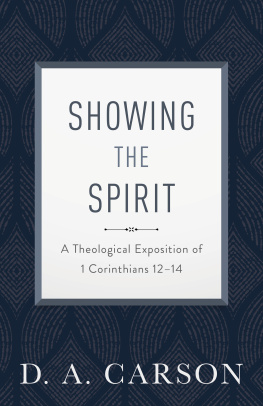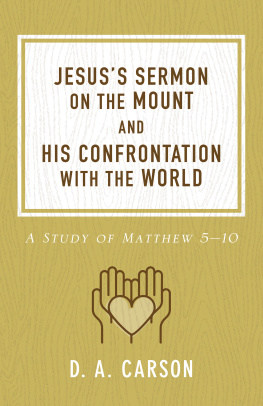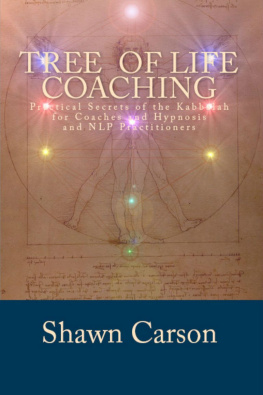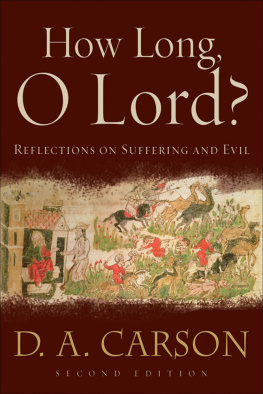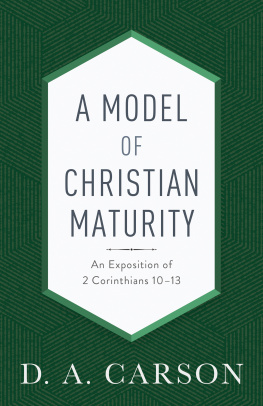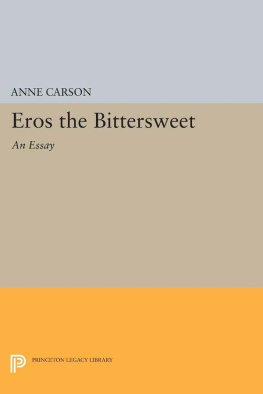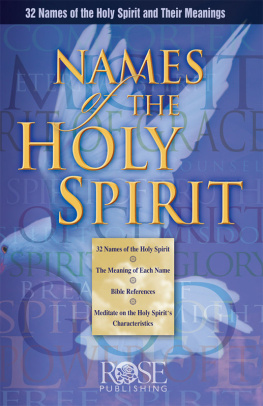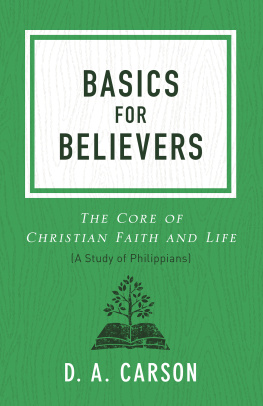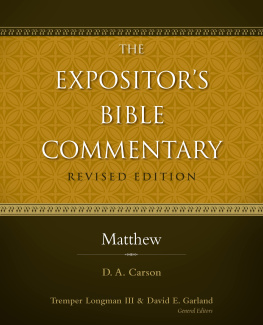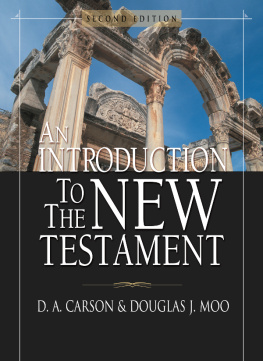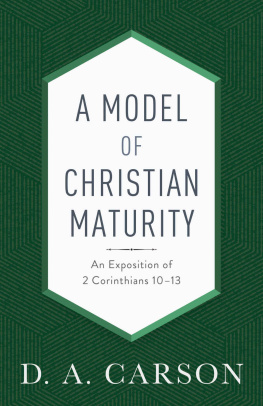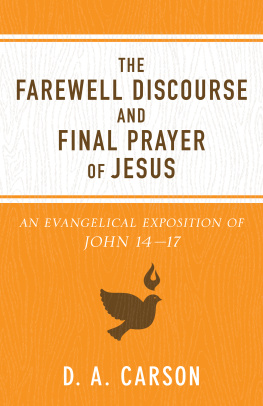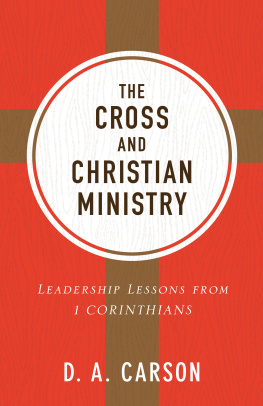1. The Unity of the Body and the Diversity of Gifts (12:130)
2. The Most Excellent Way; or, When Does Perfection Come? (12:3113:13)
4. Order and Authority: Restraining Spiritual Gifts (14:2040)
5. Unleashed Power and the Constraints of Discipline: Toward a Theology of Spiritual Gifts
Preface
T HE PAGES of this book were first prepared for oral delivery as the Moore College Lectures of September 1985. I am very grateful to the former principal, Dr. Broughton Knox, for issuing the invitation, and to the current principal, Dr. Peter Jensen, and his faculty for the warm welcome they accorded me. I cannot speak too highly of the many kindnesses shown me, far beyond more courtesy. The two happy weeks I spent down under brought renewed friendships with Rev. Allan and Pamela Blanch, Rev. Phillip and Helen Jensen, and Dr. Peter and Mary OBrien, and a host of new friends and acquaintances too numerous to mention. But one very special friend was a three-year-old charmer, Anne Woodhouse.
The invitation to give the lectures became the spur to put into print some material I had been thinking about and teaching for some years. Without that incentive, it would still be formless. Because the issues are so complex and widely disputed both in academic circles and in the church at large, I have included fairly extensive notes and bibliography for the more advanced student, while retaining the style of the lectures in the body of the text.
One does not reach conclusions like those put forth in these pages without extensive interaction with many people. I am reluctant to begin a list of names; but in addition to the help I received from the largely technical sources mentioned in the notes, I am particularly indebted to three people: Dr. Max Turner of Aberdeen University, whose long conversations with me more than ten years ago helped to sharpen my thinking; Dr. Roy Clements, pastor of Eden Baptist Church in Cambridge, England, whose expository series on this epistle was a great and stimulating delight; and Dr. Kenneth S. Kantzer, who kindly provided me with extensive class notes from a course he has been teaching for years. I am sure I have borrowed from these men without always realizing it. None of them will agree with everything I have written; but that probably means I have much more to learn.
Because the debate over the charismatic movement is far from being of merely academic interest, I have included in the bibliography and notes, as well as in the topics discussed, a representative number of more popular treatments along with the technical studies. Otherwise, I fear these lectures would have scratched where only a few fellow academics itch. My graduate assistant, Mr. Mark Reasoner, was indefatigable in tracking down obscure articles and books; and the staff of Rolfing Library, invariably helpful and courteous, must nevertheless be grateful the project has come to an end. One or two works in the bibliography, in particular the book by P. Benoit et al., arrived too late to be usedexcept for one essay by James D. G. Dunn, an offprint of which was kindly loaned me by Dr. Scot McKnight. I am grateful as well for the work of Rev. Dan Estes and Rev. Bruce Winter, who compiled the indexes for me at an extraordinarily busy juncture of my life.
The series was delivered in slightly abbreviated form at Mennonite Brethren Biblical Seminary in Fresno, California, and at Canadian Theological Seminary in Regina, Saskatchewan, in the autumn of 1985, providing me with further opportunities for reflection and revision. I am grateful for the many kindnesses shown me on these occasions.
Soli Deo gloria.
D. A. Carson
Trinity Evangelical Divinity School
Introduction
I N THE ENTIRE RANGE of contemporary Christian theology and personal experience, few topics are currently more important than those associated with what is now commonly called the charismatic movement. The label itself, as we shall see, is in the light of the biblical usage of ( charisma ) somewhat misleading; but because it is the common term, I shall continue to use it. What makes the subject difficult in any case is not so much the label as the substance. The movement embraces not only the traditional Pentecostal denominations but substantial minorities in most of the denominations of Christendom; and in some parts of the worldSouth America for instanceit is simultaneously the major Protestant voice and a successful invader of the Roman Catholic church. Whatever their theological commitments, young clergy will wrestle with questions raised by the charismatic movement as frequently and in some instances as painfully as anything else that comes their way.
As the charismatic movement has grown, so also has it become more diversified, thereby rendering many generalizations about it remarkably reductionistic. But it is probably fair to say that both charismatics and noncharismatics (if I may continue to use those terms in nonbiblical ways) often cherish neat stereotypes of the other party. As judged by the charismatics, noncharismatics tend to be stodgy traditionalists who do not really believe the Bible and who are not really hungry for the Lord. They are afraid of profound spiritual experience, too proud to give themselves wholeheartedly to God, more concerned for ritual than for reality, and more in love with propositional truth than with the truth incarnate. They are better at writing theological tomes than at evangelism; they are defeatist in outlook, defensive in stance, dull in worship, and devoid of the Spirits power in their personal experience. The noncharismatics themselves, of course, tend to see things a little differently. The charismatics, they think, have succumbed to the modern love of experience, even at the expense of truth. Charismatics are thought to be profoundly unbiblical, especially when they elevate their experience of tongues to the level of theological and spiritual shibboleth. If they are growing, no small part of their strength can be ascribed to their raw triumphalism, their populist elitism, their promise of shortcuts to holiness and power. They are better at splitting churches and stealing sheep than they are at evangelism, more accomplished in spiritual one-upmanship before other believers than in faithful, humble service. They are imperialistic in outlook (only they have the full gospel), abrasive in stance, uncontrolled in worship, and devoid of any real grasp of the Bible that goes beyond mere proof-texting.

